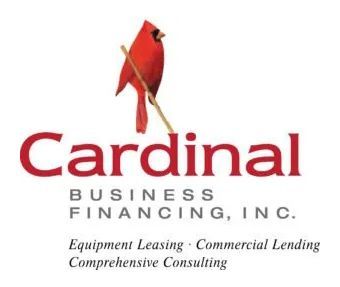Myth #1: Factoring is “all or nothing”: You have to factor ALL of your invoices to qualify.
FACT:
Not every factoring company requires businesses to factor all of their invoices. Some offer much more flexibility to allow the business to factor a small number of invoices. For example, AR Funding works with clients who have chosen to factor as few as 25% of their invoices.
This kind of flexible arrangement enables business owners to free up a small amount of cash to address a short-term cash-flow issue while minimizing the financing costs involved.
Myth #2: Factoring Is a “Last Resort” for Desperate Businesses.
Examples of businesses that choose to factor their invoices include:
Startups
: To qualify for most traditional funding sources, such as business loans and lines of credit, a business must be able to show two years of business history, which can put these funding sources out of reach for young and fast-growing businesses. Accounts receivable financing, on the other hand, focuses on criteria that a thriving startup is more likely to meet, even if they don’t have a lengthy financial track record.
Seasonal and cyclical businesses : Banks look for consistency in the company’s cash flow as an indicator that the company is stable and less of a credit risk, but some businesses are unable to demonstrate the required consistency because of their seasonal or cyclical nature. Revenues for seasonal businesses fluctuate with the weather and time of year, while revenues for cyclical businesses are affected by economic upturns and downturns.
High-growth companies : Businesses that are growing quickly need access to cash to fund their expansion, but many banks see rapid growth as a risk factor. For example, a staffing company that wins a large contract may find that a bank won’t issue a loan or line of credit based on the potential revenue that contract represents, whereas a factoring company will.
Myth #3: Factoring Is for Businesses that Can’t Qualify for a Bank Loan.
FACT: Businesses that qualify for traditional bank loans and lines of credit may still choose factoring as a funding source in order to avoid restrictive terms. Traditional loans can include covenants that require the borrower to fulfill certain conditions or that restrict certain business activities, while factoring gives the business owner the freedom to run their business and make the business decisions however they see fit.
Accounts receivable financing can also release a larger sum of working capital than a bank would be willing to extend because a factor and a bank use different lending criteria. A bank evaluates the business’s own credit-worthiness and the value of its own assets when making a funding decision. A factoring company, however, evaluates the credit-worthiness of the business’s entire customer base and the value of its accounts receivable, which can qualify the business to access more funds than a traditional loan would offer.
Myth #4: Factoring Can Impact Your Customer Relationships Negatively.
FACT: Businesses work hard to build good relationships with their customers, and it’s natural for them to be protective of those relationships. But the truth is that by factoring their invoices, businesses improve their customer relations in several key ways. By factoring their invoices, a business can:
Myth #5: Factoring Is an Expensive Way to Improve Cash Flow.
FACT
: The cost of accounts receivable financing has decreased steeply over the past two decades. Today, factoring fees are much more in line with those charged by a bank, with some factoring companies offering rates as low as 1% every 30 days.
While these lower rates are still higher than those of a traditional business loan, it’s not an “apples to apples” comparison, because factoring rates cover both funding and a range of valuable and time-saving services.
In addition to converting your outstanding invoices into cash, a factoring company also lightens your administrative load by assuming all the work involved in servicing those invoices, managing the payment process, and vetting customers for credit-worthiness.
And finally, if your business is able to take advantage of early payment discounts with suppliers by factoring your invoices, it could fully offset your factoring costs.
If you would like to learn more about receivables financing and how it may benefit your business, please call or email us at:
866-578-5999 ext.101
The post
TOP 5 MYTHS ABOUT ACCOUNTS RECEIVABLE FINANCING appeared first on
Cardinal Business Financing, Inc. .








